Speech Pathology & Occupational Therapy
Therapists at NSA work within an educational framework. To support the educational programs the school provides a range of specialist services including speech pathology and occupational therapy. Teachers and therapists work as multi-disciplinary teams to ensure that students have access to consistent and effective programs.
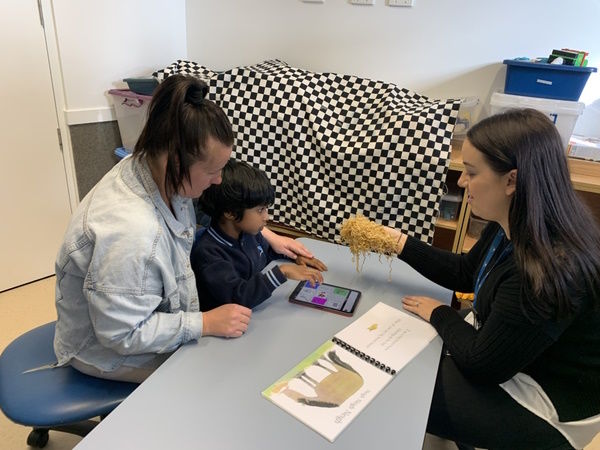 | 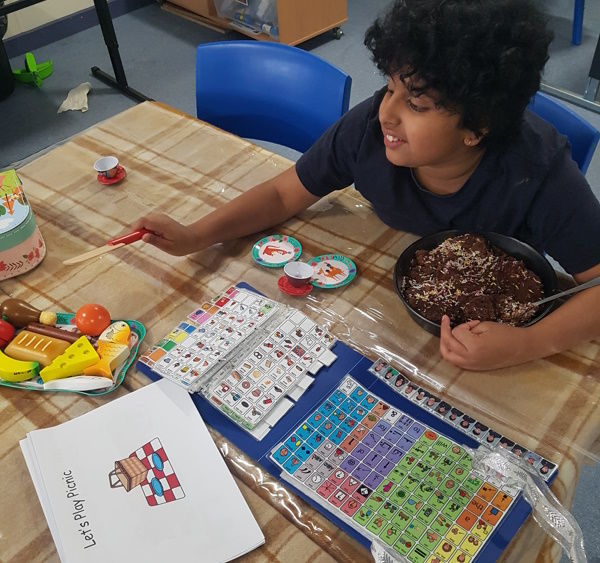 | 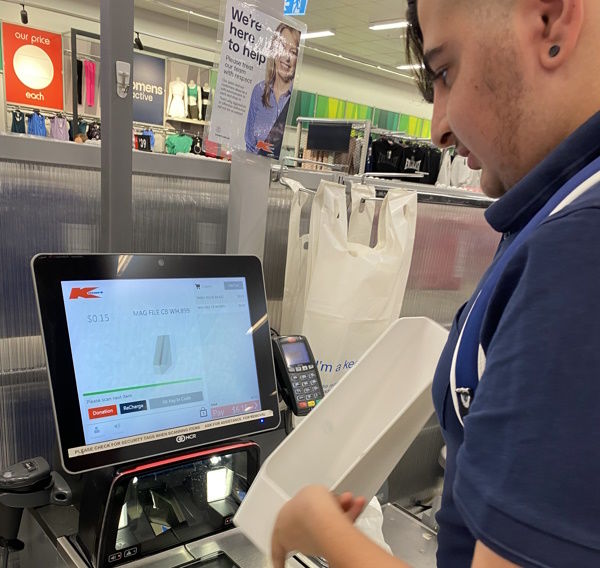 | 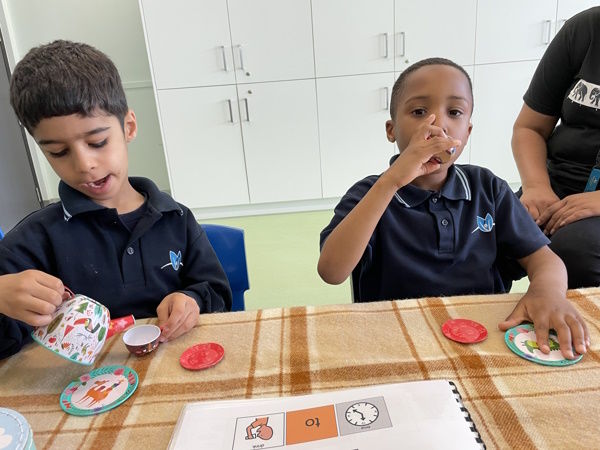 |
Occupational Therapy (OT)
Occupational Therapists (OT) support students to participate in activities of everyday life at school and in the community. They help students develop independence to successfully engage with their world and in activities that are meaningful to them and their families.
Occupational Therapists at NSA work collaboratively with teaching teams to provide individualised programs to support a range of skill areas including:
Fine Motor SkillsGrasp development, hand strength, handwriting, and functional tasks such as opening food packages and managing fasteners on clothing | Visual Motor SkillsSupport student’s coordinated body movements with what the eyes perceive. This includes programs to support visual processing, visual perceptual skills and hand-eye co-ordination | Gross Motor SkillsBike riding, accessing play equipment, ball skills, and general underlying gross motor skills such as core strength, flexibility and endurance | Self-care SkillsParticipating in personal care skills such as; teeth brushing, dressing, shoelace tying and toileting, managing puberty and mealtimes |
Executive FunctioningMemory, attention, planning, organisation skills, goal setting, emotional regulation, problem solving and task initiation | Sensory Processing & IntegrationSensory programs, tools to support students regulation and body awareness | Social SkillsWorking on a shared task, friendship, turn taking and conflict resolution | Community Access & Work-orientated SkillsCommunity safety, computer skills, lunch and snack preparation and reading public transport timetables |
- OTs assess and prescribe students with equipment (such as adapted cutlery, chew tubes, specialised seating) to support performance in everyday tasks.
- The aim of the Occupational Therapy team is to promote independent young people who are ready to learn and are part of the school and wider community.
Speech Pathology (SP)
Students at NSA have a wide spectrum of communication skills. Each student is individually assessed to identify their communication strengths and skills to work on. This combined with thorough case history from families and external supports give the Speech Pathologists and classroom teams a complete communication profile.
Some students are early communicators, who have limited verbal skills or may not use speech at all. Other students may have highly developed language skills but find it difficult to use language to socialise and interact with others. All forms of communication are acknowledged.
Speech Pathologists (SP) are part of a collaborative model at NSA. This means that we work closely with teaching teams to plan how students can be presented with opportunities to communicate throughout the school day. Our focus is assisting students with complex communication needs access the curriculum taught by teachers. Additionally, SPs support teachers to encourage students to use their various communication systems and plan activities that focus on individual communication goals within the classroom program.
Speech Pathologists rotate between classrooms throughout the week and work with students in one on one or group work sessions. We also work directly with teaching teams to consult on group communication needs.
Speech Pathology Builds IndependenceThe Speech Pathology team work with teaching teams and Leadership team to build student’s ability to be as independent as possible and participate in the school and wider community. At NSA, our programs focus on the specific development of these key areas: |
Social ThinkingExplicit teaching of the reasons why we perform specific social skills to help generalise these skills across varying contexts and environments. | LanguageExploring how we use words, phrases and sentences to express ourselves as well as understand the language around us. | SpeechTargeting production of specific sounds and words to further develop verbal speech and support literacy skills. | PlayEncouraging the emergence and development of early social skills and interaction strategies |
Mealtime SupportSupporting students with eating and swallowing difficulties manage their intake safety. Also working with students identified as ‘Picky or Problem eaters’ to increase their range of food intake. | Augmentative & Alternative Communication (AAC)Teaching students how to use signs/symbols, picture, Core Vocabulary Boards and electronic devices to communicate functionally. | Work & Community SkillsSupporting secondary aged students to prepare for post-school life by encouraging communication and participation in vocational activities |
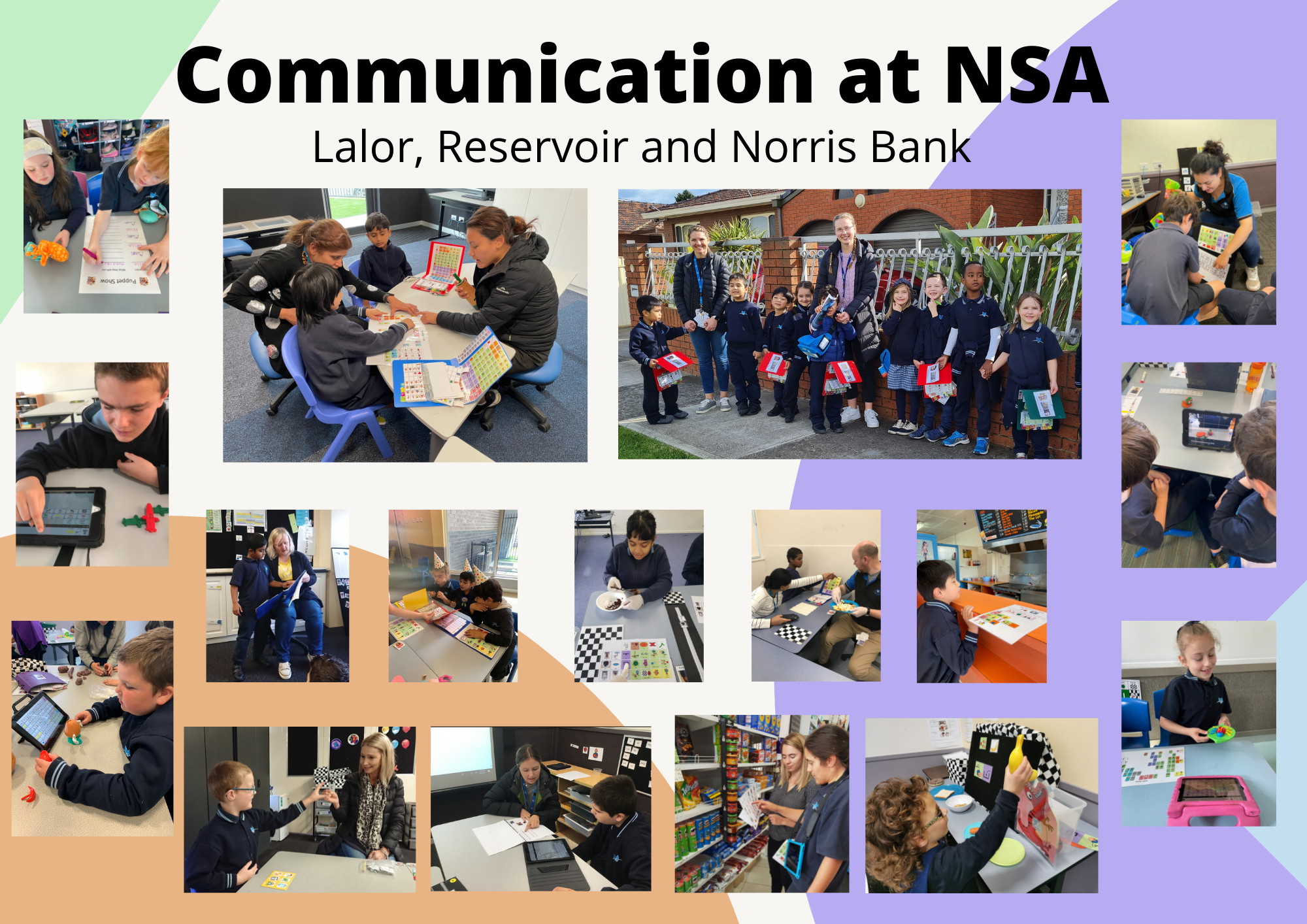
Communication Accessible Schools (CAS)
| The Northern School for Autism (NSA) is committed to developing Communication Accessible Communities. Together with the Speech Pathology department and the wider school community, the Communication Accessible Schools (CAS), committee was formed in 2018. NSA is dedicated to supporting students with complex communication needs. The school community is diverse, and each of our students require an individualised approach when developing a communication accessible environment. The CAS committee is comprised of individuals representing all professions within the education space, including the Principal Team, Leading Teachers, Classroom Teachers, Educational Support Staff, Occupational Therapists and Speech Pathologists. To summarise, our committee focuses on creating a school that is somewhere where:
These guiding principles also apply to NSA’s extensive community access programs, ensuring that our students still have the ability to communicate beyond the classroom. The CAS committee engage in lifelong learning and make regular adjustments to maintain the best support and understanding of communication accessibility within our school community.
| 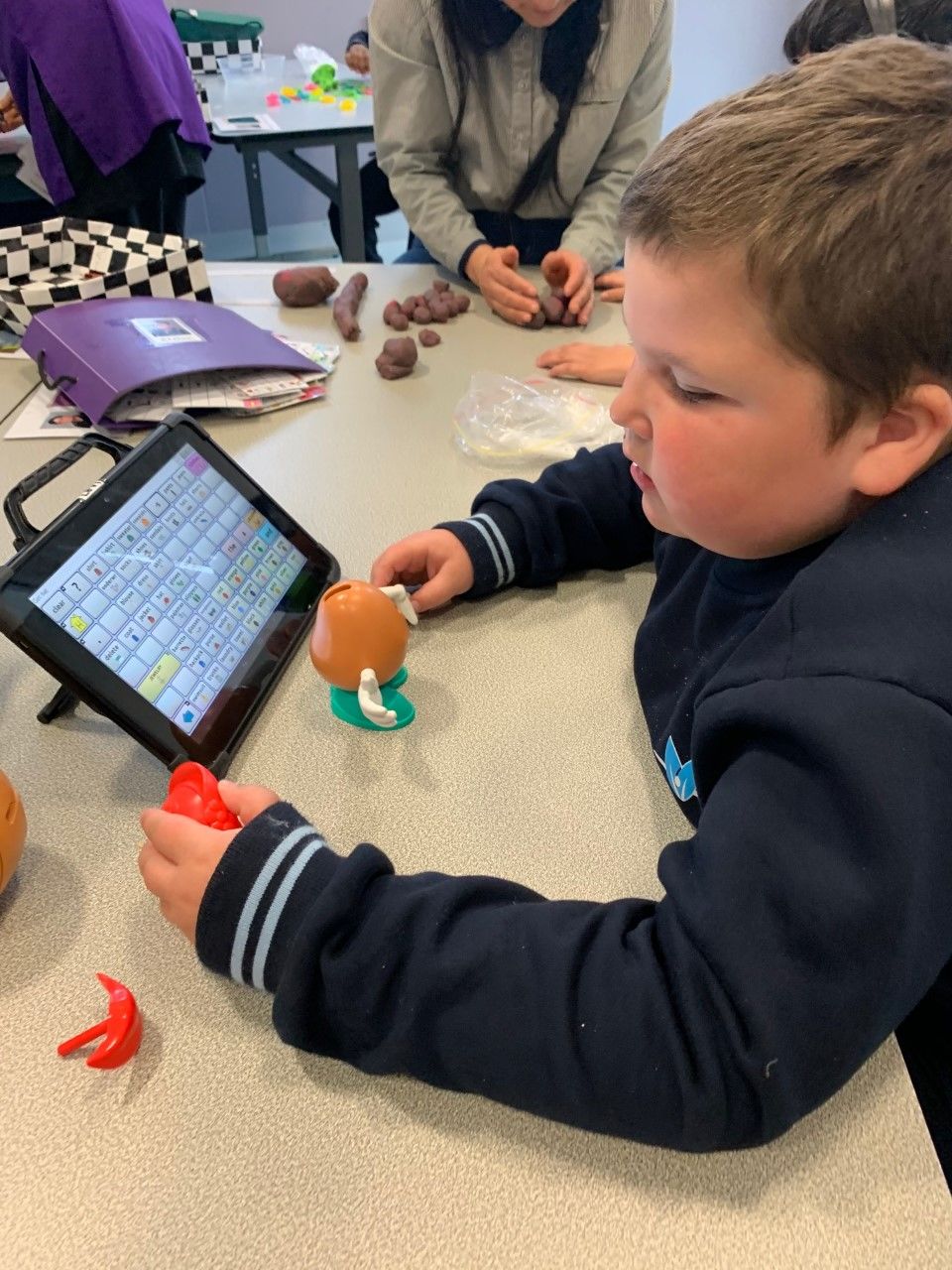 |